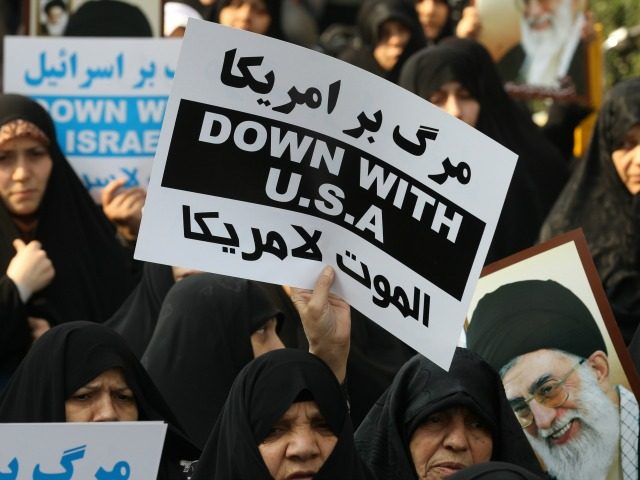As the complete defeat of the Islamic State in Mosul, Iraq, inches closer to reality, concerns in Iraq are growing that the U.S. and Iran, whose forces are de facto allies in battle, will revert to conflict, competition, and possible bloodshed.
“To many Iraqis, this poses a challenge: will their country, just as it emerges from the devastating war against Islamic State, get sucked into in a new round of rivalry between its two most important partners? Such a conflict in Iraq, after all, has the potential to reverberate across the Middle East—and to set off a new wave of bloodshed,” writes the Wall Street Journal‘s Yaroslav Trofimov from Mosul.
The Trump administration has struck a hawkish tone on Iran, with the President putting Iran “on notice” in early February after it launched a medium-range ballistic missile test in contravention of international law.
His top commander in U.S. Central Command recently called Iran the top threat to stability in the region and said its provocative behavior in the region – harassing U.S. ships and sponsoring terrorism – has not changed since the nuclear deal’s signing under former President Obama.
Iran’s paramilitary force, the Basij, just recently awarded Trump the “Wet Gunpowder Award,” for being “anti-Iranian” and “wicked.”
But currently, both are supporting the Iraqi government in the fight against ISIS, which is culminating in Mosul, Iraq’s second-largest city and the terrorist group’s stronghold since 2014.
“Once Islamic State is defeated, however, Washington’s and Tehran’s interests are likely to diverge, especially if President Donald Trump makes good on his pledge to aggressively contain Iranian power in the region,” Trofimov writes.
Iraq has “a divided loyalty” between the U.S. and Iran, Hoshyar Zebari, a senior Kurdish politician who served as Iraq’s foreign minister for more than a decade after the 2003 U.S. invasion, told the WSJ.
Iran’s influence in Baghdad has grown since U.S. troops withdrew from the country at the end of 2011. Iran-backed Shiite armed groups also helped stop ISIS’ growth in Iraq after it swept through the country in 2014.
Concerningly, a senior leader of one of the main pro-Iranian Shiite groups, Kataeb Hezbollah, which fought against U.S. troops before they withdrew in 2011, called the U.S. an “enemy.”
“Today we have two enemies, the ISIS enemy and the American enemy. If ISIS gets defeated militarily there won’t be any justification for the presence of American forces, and we will treat them as invaders, just as we did between 2003 and 2011,” Sheikh Abu Talib al Sa’aidi told the WSJ.
Iran, which is Shia-dominant, also enjoys influence in the autonomous Kurdistan region of northern Iran, and friction between Washington and Tehran could also destabilize the region.
“We consider ourselves an ally of the United States, and so we don’t want to be caught between an ally and a neighbor,” said Fuad Hussein, chief of staff of Kurdistan President Masoud Barzani told WSJ.
The U.S. has authorized 5,262 troops to deploy to Iraq, and likely has hundreds more deployed on a short-term basis. It has also conducted thousands of airstrikes in the country.
Iraqi Prime Minister Haider Abadi is scheduled to visit Washington next week, and the U.S. military’s future presence in Iraq will likely be discussed. The topic may become a flashpoint as Iraq prepares for national elections next year.

COMMENTS
Please let us know if you're having issues with commenting.